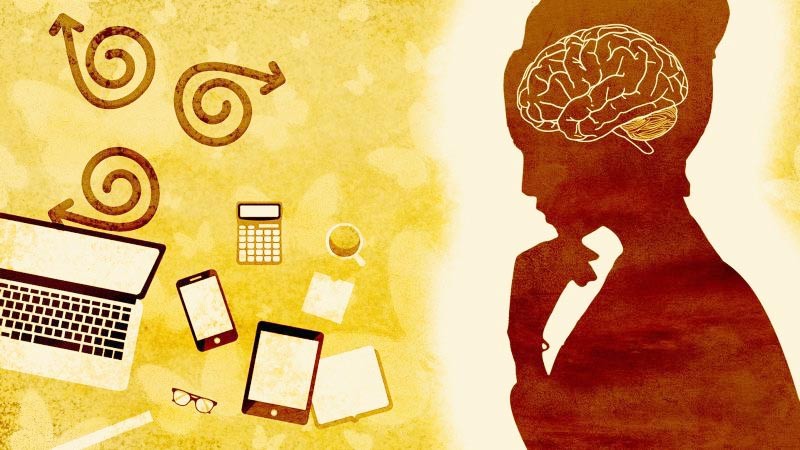
Sungjemlila Aier
Kohima
The digital age is a time where technology offers information on a platform where it is available to everyone who has access to these technologies. This is largely dominated by the internet. The internet, from the time of its inception, has made rapid and dramatic changes to society. Everything from the way we interact to the way we gain knowledge has been incalculably altered.
In a world where everything is becoming more accessible to us, we face the dilemma of whether this is a blessing or a boon. Countless debates on the subject have born the answer that it helps us gain access to a number of things from the comfort of our homes. This is quite the conundrum given that this accessibility can work for or against humanity. For the most part, the outcome of this is dependent on how we make use of the information available to us.
‘Technology is a useful servant but a dangerous master’- Lous Lange
A large number of studies have found a strong association between digitalization and poor mental health. The most common problem due to digitization is, perhaps, cyber-bullying. It is the idea of not being held accountable, hiding behind a screen that makes it easier to let go of inhibitions which may sometimes get ugly. The internet can also be home to communities that pose a threat to society. Even the idea of sex has become disproportionately unrealistic through pornography which is easily accessible to anyone. The content that is available to us, carefully curated to fit sometimes, harmful ideals, can contribute to the onset of mental distress and may perpetuate feelings of anxiety, social exclusion and body image issues.
A facet of the digital age that is placed on a pedestal is social media. It is true that social media has brought the world closer but at the same time, driven us apart. Social media has caused people to draw comparisons between their lives and the lives of the people online which often display only what they want people to see. How much ever we understand that ‘nobody is perfect,’ this idea is seemingly impossible to grasp due to the content that we see. We strive for perfection based on this which poses a threat to mental health- having unrealistic goals that can hamper growth and sometimes even lead to depression, body dysmorphia and eating disorders.
Social media addiction has emerged out of the advancement of technology. There is so much content being created, each striving to be more different than the other which keeps us ceaselessly interested. There is also a fear of missing out which is like fuel to social media addiction and drives us to stay connected. The currency of ‘likes’ and ‘views’ provides the validation that we seek to feel good about ourselves, setting off a series of chemical reactions in the brain that work like any substance addiction. According to a study done in 2018, high use of internet is strongly associated with psychological distress, depressive symptoms and low self-esteem.
Social media is so heavily integrated in our lives that we don’t go a day without checking into some social media platform. At such an impressionable age, it is not surprising that the overuse of technology has a more significant impact on developing children and teenagers. It goes without saying that they are more susceptible to the negative impacts of digitization and mental health care concerning technology should be tailored to their needs.
Technology advancement has shifted the way we look at health care. It is so easy for us to find help online these days. The moment we experience something unusual or some discomfort, we log into the internet, see what the symptoms mean, which sometimes leads us into a rabbit hole, blowing things out of proportion and then we are left feeling like we have a deadly disease and only a few hours to live! We can opt for online counseling through the help of Smartphone applications or read blogs and articles that address the issues we are experiencing. This can be beneficial to a lot of people seeking mental health care who wish to remain anonymous. While there are benefits to practicing self care, in many cases, seeking help in person seems to have a much better success rate.
These instances give us the answer as to why mental health is such an important aspect in the digital age. With growing evidences that suggest a strong association between mental illnesses and digitization, we are drawn to conclude that mental health is of utmost concern. Having a strong mental health means you are more resilient to adversities that can sometimes be unavoidable. Furthermore, mental health and physical health is strongly correlated so, maintaining a healthy body will contribute to a healthy mindset.
Although the use of digital medium has placed a huge burden on our mental health, there are means to reduce the negative impacts of technology abuse such as practicing digital hygiene to help form a better, much healthier relationship with technology and foster connectivity to the real world.





